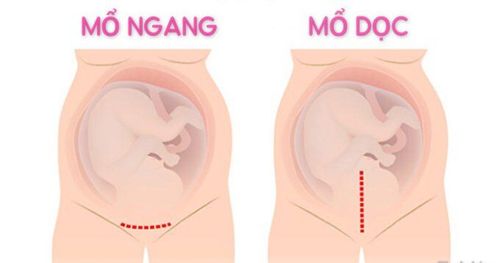The article was professionally consulted by a Doctor of General Surgery & Anesthesia - Vinmec Hai Phong International General Hospital.
Surgery is one of the surgical methods used to effectively treat a number of diseases. However, this is an invasive intervention, so patients often encounter many complications after surgery, including postoperative bleeding. Postoperative bleeding is a postoperative complication that doctors should not ignore, affecting the health and recovery of the patient, so it needs to be treated immediately when this condition is detected.
1. What are postoperative complications?
Although surgery can be an effective method in treating diseases, it still has some postoperative complications that patients cannot avoid. Postoperative complications are often very diverse and different for each patient, each surgical method... Below are some postoperative complications that patients may experience:
• Postoperative pain: Depending on the surgical site as well as the size of the surgical wound, the total amount of tissue that the patient must remove during surgery and the patient's general condition before surgery, the level of pain will be different. To handle this condition as quickly as possible, the patient can use painkillers to temporarily relieve the pain.
• Fatigue: After surgery, especially major surgery in the abdominal and chest organs, patients often feel tired after surgery for a period of 2-4 weeks.
• Anorexia: When anesthetized for surgery, it can leave complications of anorexia in patients, causing them to lose weight in a short period of time.

• Swelling of the surgical wound: The cause is due to an inflammatory reaction around the injury that causes the surgical wound to swell, which will then stop when the surgical wound has healed.
• Discharge from the surgical wound: The appearance of a foul-smelling discharge around the surgical wound, and redness and heat around the surgical wound are signs of a surgical wound infection.
• Bruising, numbness around the surgical wound: The cause is explained as blood leakage under the skin, special attention should be paid when bruising is accompanied by swelling and edema. Numbness around the surgical wound is due to the skin nerves being cut off during surgery, causing a feeling of numbness for a period of time.
• Postoperative bleeding: This is a postoperative complication that does not affect the patient's life, but should not be ignored and should be reported immediately to the treating physician when there are signs of bleeding after surgery.
• Postoperative infection: The most common signs of infection are swelling, heat, redness, pain, possible discharge and the patient may have a fever. In severe cases, there may be pus around the wound and it is difficult to treat with antibiotics successfully. Therefore, when there are signs of infection, the patient should immediately notify the medical staff.
• Lymphedema: This is a common postoperative complication in patients undergoing lymph node dissection surgery.
• Disorders of some organs in the body, especially in areas near the surgical site.

2. Postoperative bleeding
Postoperative bleeding is considered one of the postoperative complications that should not be overlooked. The cause of postoperative bleeding is that during surgery, it is necessary to invade some parts of the body to remove part or all of the damage that affects the patient's health, at this time it will affect the blood vessels of these organs, causing blood loss during surgery. In most cases, blood loss during surgery will not affect the function and activity of organs in the body, but some surgeries can cause the patient to lose a large amount of blood, possibly due to the characteristics of the surgically intervened organ or the large size of the surgical incision, leading to postoperative bleeding.
Postoperative bleeding is divided into two main types: visible bleeding including bleeding from the surgical wound, muscle bleeding, subcutaneous bleeding and invisible bleeding which is bleeding in the organs inside the abdomen and inside the pleura. Typical clinical symptoms of postoperative bleeding are that the patient feels thirsty, the body temperature drops causing the patient's skin to feel cold, the mucous membranes are pale, the blood pressure index drops abnormally, dizziness, drowsiness... At the same time, when there are the above signs, the patient will be assigned to do paraclinical tests for examination, in which a typical sign of postoperative bleeding is that the blood test results show a decrease in the Hct index. If the patient has suspicious signs, it is necessary to immediately notify the medical staff and the treating physician to monitor the risk of postoperative bleeding.

The first thing to do when the patient shows signs of bleeding after surgery is to apply pressure to the bleeding site with a clean, dry bandage, then notify the treating physician for further instructions. To handle this condition, after surgery, the patient will receive a blood transfusion as prescribed by the doctor, which is why before every surgery, the patient needs to have a blood type test to find a compatible blood type for transfusion when necessary. It is important to always monitor the patient's vital signs during the postoperative period, including pulse, breathing, temperature, and blood pressure, to promptly detect and handle any adverse developments after surgery.
Postoperative complications are often very diverse and complex, depending on the type of surgery, the size of the wound, and the patient's body. In addition to other common complications, postoperative bleeding is a phenomenon that requires timely treatment so as not to affect the blood supply to the organs in the body. Therefore, as soon as the bleeding from post-operative wounds is temporarily stopped, the medical staff must immediately notify the treating physician to have appropriate treatment for each patient. Vinmec International General Hospital with a system of modern facilities and medical equipment along with a team of experts and doctors with many years of experience in examining and treating neurological diseases, patients can completely rest assured when visiting and receiving treatment at the Hospital.
To arrange an appointment, please call HOTLINE or make your reservation directly HERE. You may also download the MyVinmec app to schedule appointments faster and manage your reservations more conveniently.
To arrange an appointment, please call HOTLINE or make your reservation directly HERE. You may also download the MyVinmec app to schedule appointments faster and manage your reservations more conveniently.






